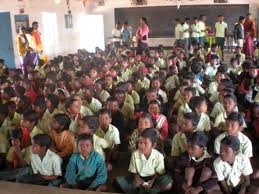África/Costa de Marfil/Junio 2016/Autor: Editor / Fuente: allafrica.com
Resumen: El Segundo Foro Ministerial Africano sobre la integración de las tecnologías de la información y las comunicaciones (TIC) en la educación y la formación, bajo el lema: «Impulsar sociedades del conocimiento integradoras en África para aplicar el Programa de África 2063 y los ODS terminaron el jueves 9 de junio en Abiyán con una conclusión más importante: es urgente acelerar la integración de las TIC en la educación y capacitación para desarrollar habilidades del siglo 21, avanzar en la sociedad del conocimiento y lograr Agenda de África 2063 y los Objetivos de Desarrollo sostenible (ODS).
The Second African Ministerial Forum on the integration of information and communications technology (ICT) in education and training under the theme: ‘Advancing inclusive knowledge societies in Africa to implement Africa’s Agenda 2063 and the SDGs’ ended on Thursday, June 9 in Abidjan with a major conclusion: it is urgent to accelerate ICT integration in education and training to develop 21st century skills, advance knowledge society and achieve Africa’s Agenda 2063 and the Sustainable Development Goals (SDGs).
Governments as well as education and training stakeholders are particularly invited to:
Move from policy to action by developing national and regional strategies and programs, as well as accountability mechanisms matching the ambition of the Global Agenda 2030 and Africa’s Agenda 2063;
Create an enabling environment for fostering partnerships to accelerate the implementation of ICT integration in education and training systems;
Accelerate the use of ICT to offer all learners an equal opportunity to access quality education;
Integrate skilling in digital technologies into all technical and vocational skills development programs;
Promote youth employment and self-employment through holistic training combining the mastery of the latest technologies, providing support for professionals and an incubation period for the creation of start-ups that include logistical and financial support;
Establish sustainable financing strategies through the development of partnerships with foundations, technical and financial partners, telecommunication regulators and operators as well as various digital solidarity funds;
Create multifunctional digital spaces accessible to all the actors of society (pupils, students, youth, women and other economic actors) to support education, health and environments conducive to business;
Design and deliver learning pathways tailored to the needs of children and young people affected by crises and conflicts as well as to the needs of other marginalized groups;
Implement mechanisms for prior learning assessment and certification of vocational and technical skills outside formal institutions, so as to promote access to employment, employability and mobility of young people;
Encourage, through incentives, the creation of training content drawing on indigenous cultures;
Build technological alliances to ensure that the latest advances in equipment and operating systems are extended to the African continent;
Provide schools with access to mini-networks and systems to ensure power supply.
Officially opened on June 8, 2016 by the Prime Minister of Côte d’Ivoire, Daniel Kablan Duncan, and closed by the Minister of National Education of Côte d’Ivoire, Kandia Camara, the Forum attracted more than 150 participants from 37 countries.
In their respective speeches, Oley Dibba-Wadda, Executive Secretary, Association for the Development of Education in Africa (ADEA); Bruno Koné, Minister of Digital Economy and Posts, Côte d’Ivoire; Kandia Camara, Minister of National Education of Côte d’Ivoire; John Galvin, Director of Intel Education; and Warren La Fleur, Microsoft’s Education Lead for West, East and Central Africa; reaffirmed their commitment to further support ICT integration in education and training in Africa.
In his address, the Ivorian Prime Minister commended especially the Association for the Development of Education in Africa (ADEA), for its technical support to the consultations on the issue of ICT integration in education in Africa.
On the way forward, the Ivorian Minister of National Education, Kandia Camara, said, «The Forum has shown that African countries are firmly engaged in the path of digital technology. Like Côte d’Ivoire, they aspire to become emerging countries and integrating ICT in education is a fundamental element towards achieving this.»
ADEA’s Executive Secretary, Dibba-Wadda said, «ICT integration in the education sector is a technical and policy issue that would guarantee continuous training to both the teacher and the learner.»
Jerome Morrissey, CEO of the Global e-Schools and Communities Initiative (GESCI) , underlined «the pivotal importance of education and skills development for future social cohesion, employment and for wider knowledge society development [… ] This means that countries must now re-focus on improving their education model through the incorporation of digital technologies,» he said, reminding the meeting that such a focus concurs with SDG 4 to «ensure inclusive and equitable quality education and promote life-long learning opportunities for all.»
Participants at the Forum included African Ministers and policy-makers in charge of education, higher education and scientific research and ICT; experts in the field of education and ICT from technical agencies, universities and research institutes; representatives of the private sector in the field of ICT; regional and international experts involved in the development and implementation of ICT integration policies in education; representatives of co-operation and development agencies; and representatives of pan-African bodies and regional economic communities working in the field of education and training.
Twenty-two African countries participated in the Forum including Angola, Benin, Burkina Faso, Côte d’Ivoire, the Democratic Republic of Congo (DRC), Djibouti, the Republic of Guinea, Kenya, Liberia, Madagascar, Mauritius, Morocco, Mozambique, Namibia, Niger, Nigeria, Senegal, South Africa, Tanzania, Togo, Zambia and Zimbabwe.
The 2nd African Ministerial Forum on the integration of ICT in education and training was organized by the Government of Côte d’Ivoire through the Ministry of National Education, the Association for the Development of Education in Africa (ADEA), the Global e-Schools and Communities Initiative (GESCI), the African Development Bank Group (AfDB), Intel, the United Nations Educational, Scientific and Cultural Organization (UNESCO), the international Organization of the Francophonie (OIF) and Microsoft.
Visit the Forum’s website at http://www.africaictedu.org for further information.
Media contacts:
– Stefano De Cupis, Senior Communications Officer, ADEA, T. +225 2026 4261, s.decupis@afdb.org
– Said Dosso, Communication Assistant, Ministry of National Education, Côte d’Ivoire, T. +225 2022 2957, youngsaid13@gmail.com
– Thanh-Hoa Desruelles, Senior Expert, Advocacy, Partner Relations and Communications, GESCI, T. +33/ (0) 4 99 43 59 22, thanh-hoa.desruelles@gesci.org
Forum Coordinators:
– Brahima Sangare, Advisor to the Minister, Ministry of National Education, Côte d’Ivoire, bsangson@yahoo.fr
– Tarek Chehidi, Senior Programme Development Specialist, GESCI, tarek.chehidi@gesci.org
– Shem Bodo, Senior Programs Officer, ADEA, s.bodo@afdb.org
Fuente de la noticia: http://allafrica.com/stories/201606241014.html
Fuente de la imagen: https://www.google.co.ve/search?q=abiy%C3%A1n&client=ubuntu&hs=L8E&channel=fs&biw=1366&bih=671&source=lnms&tbm=isch&sa=X&ved=0ahUKEwj23eeB5cPNAhVCdj4KHQJ1COgQ_AUIBigB#imgrc=TnqprUrv5GhIUM%3A



 that the new initiative, called «International Skills Training Courses», would be introduced in India, Robb said that the Australian government aimed to train at least 4,000 participants
that the new initiative, called «International Skills Training Courses», would be introduced in India, Robb said that the Australian government aimed to train at least 4,000 participants






 Users Today : 25
Users Today : 25 Total Users : 35460328
Total Users : 35460328 Views Today : 30
Views Today : 30 Total views : 3419058
Total views : 3419058